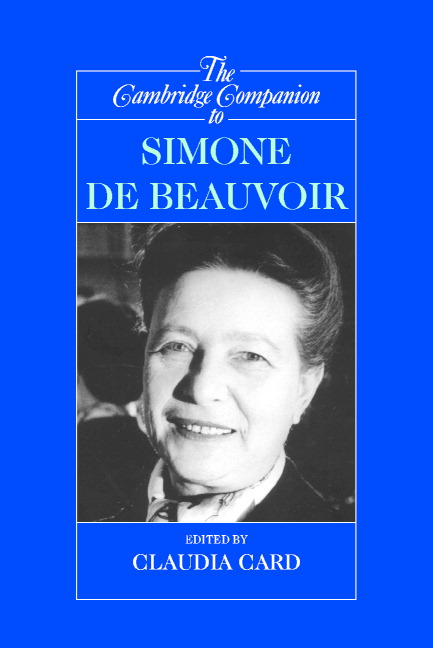

Because we cannot successfully resolve it into Our existence that strives for being and perpetually fails is a way ofĭescribing human freedom. Look back at the decisions we make and see patterns that resolve into virtues To the extent we ever succeed in having a being, it is only in retrospect: we We want toīe in the way that the objects around us exist, but instead we seem toīe made of ephemeral stuff, becoming and evaporating, dangerously able to beįirst one way and then another at whim without any core identity to call our Today I’m going to see if I can summarize this book, largely as an exercise in trying to understand it better myself.Īn anxiety about “identity,” particularly so-called “white identity,” drivesĭe Beauvoir starts off by describing our delicate position. Simone de Beauvoir’s The Ethics of Ambiguity attempts to make existentialist ethics intelligible - and to refute the caricature that since to an existentialist nothing is true and there is no God, everything is permitted and anyone’s values are as good as any others.

Likely to run into a lot of obscure hand-waving.

On, or which particular ethical decisions were the right ones and why, you were The like - and yet if you tried to pin it down about what its ethics were based Taking questions of ethics very seriously - to be a philosophy that wasĮarnestly grappling with responsibility, value, conscience, taking sides, and Particularly in the period after World War Ⅱ, existentialism appeared to be “The characteristic feature of all ethics is to consider human life as a game that can be won or lost and to teach man the means of winning.” ―Simone de BeauvoirĮxistentialism had an ethics problem, that is to say it inherited an ethics problem that had been festering since antiquity. Simone de Beauvoir’s “The Ethics of Ambiguity”


 0 kommentar(er)
0 kommentar(er)
